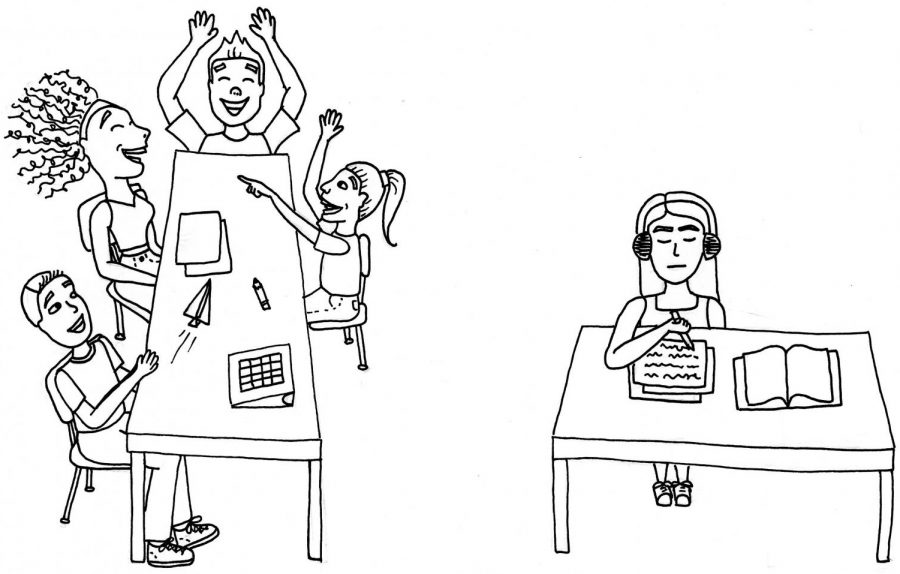Group work fails with no teamwork
Assistant news editor Melissa Dai writes that group projects do not teach responsibility and should be reconsider as a main part of the classroom setting.
June 15, 2019
When we hear the term “group project” in class, we think of working together with a cooperative group to contribute to a final product where everyone learns and demonstrates their knowledge, right? Wrong.
When I hear it, I groan because I know that I’ll probably be doing most, if not all, of the work in my group, especially if I can’t choose who I work with.
No matter what subject they’re in, most group projects are currently inefficient and require changes to ensure that they accomplish what they’re meant to do: encourage teamwork and strong work ethic while displaying students’ knowledge.
When done properly, group projects can be beneficial; they can build responsibility and help facilitate learning. Sometimes, they can even be fun. However, that is usually not the case, especially when group members have varying levels of work ethic, which often results in an unequal division of labor.
Don’t get me wrong, I understand that teamwork is a crucial life skill that will be applied in the “real” world, but the concept refers to when teams are actually collaborating with one another and sharing the workload.
Let’s be real. That rarely happens in group projects.
In my experience, the majority of the workload is usually taken on by one or two students striving for good grades while the others get to sit back, relax and enjoy the benefits of a mutual grade to which they contributed very little to achieve.
Being the one who usually does the work meant for a whole group, I can easily say that this situation is extremely frustrating.
Members of a group who don’t contribute to the project are basically allowed a hall pass when one person does all the work, demonstrating the lack of individual accountability in group projects. It’s also unfair to the students who don’t do their share because they miss out on a learning experience that would teach them responsibility and diligence along with the educational content.
Aside from lacking incentive for personal responsibility, group projects also aren’t as academically effective as some teachers believe them to be.
According to a 2005 study from the University of Denver, group projects are not as productive as individual projects in terms of educating students; students from the study working in groups learned less than the students working individually. In fact, research has shown that group work somewhat restricts the process of learning.
Additionally, group projects aren’t ideal for demonstrating students’ knowledge because they do not reflect the skills of every member, but only of those who did the work.
I’m not saying we should stop doing group projects altogether. They are definitely crucial to do in school to prepare for life because sooner or later, everyone will have to work in groups. However, there are better ways to implement them: teachers should strictly specify the tasks for each group member, allow students to choose their groups, or divide students up based on similar skill and knowledge.
Meanwhile, students who normally don’t contribute should begin actively participating in group projects and encouraging others to do the same. They should pull their weight instead of using group projects as an excuse to get a free grade and expecting others to do their work for them.
All members must work together to carry out the true purpose of group projects: learning how to work with others to create a finished product. After all, teamwork makes the dream work, right?










